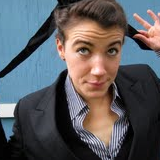Just after noon seems to be the best logistical time to practice yoga in a hostel.
Most folks have gone out to explore the city, and it’s after housekeeping has swept the floors and the dust has had time to resettle. The people still abed are so far gone that they aren’t bothered by the Darth Vader ujjayi breathing. The stragglers packing for the next leg of their journey are too distracted by the search for this cable or that charger or their glasses to pay yoga any mind. Ashtanga is a quiet practice in a bustling place; it’s only loud when you’re alone.
I was overjoyed to find company while I practiced. I’ve been doing yoga alone for months now, and the pleasure of hearing some other being breathing with me was stunning. I hadn’t realized how deeply that connection affected the body’s sense of calm, when you allow your body to fall into a pattern shared with someone else. I fell over myself thanking my compatriot afterward. The slow satisfied smile we shared after practice was sweet. As we left to explore the people still packing expressed interest in learning yoga, and protested that it hadn’t been disruptive at all. We were more of a curiosity, somewhere between a museum exhibit and trained donkeys. Maybe there is a type that is caught up by the itch to travel, or maybe traveling makes you more open-minded, but I genuinely liked the people I met at our hostel.
A friend and I had taken advantage of vacation time in order to make a trip to St. Petersburg. Travel, as we know, is stressful and time consuming. I still practiced but the luxury of a full primary series, babushkas notwithstanding, was something that had to be planned for. We stayed at the Soul Kitchen Hostel in St. Petersburg, where they offered free international calls (OMG), internet, and an honor system “take something/ leave something” shelf. The place was hopping, literally, at all hours. Travelers would come in and try to wrest their sopping wet shoes off at the door, hopping about on one foot as their feet got stuck. It rains there like a vache qui pisse, to quote one of the Frenchmen staying with us. But we got lucky. There were fleeting patches of blue sky, one startling sunset, and the biggest snowflakes I’ve ever seen. They fell, melting passerbys’ mascara and caressing my face with stinging cold kisses.
St. Petersburg, formerly known as Leningrad, formerly known as Petrograd, formerly known as St. Petersburg, has a slight identity complex, but it’s a lovely place to visit. Informally called Piter, St. Petersburg is grammatically a masculine city, while Moscow is feminine, and their relationship is characteristically fraught in this country steeped in alcoholism. Catherine the Great reputedly stated that it was easier to rule a drunk public. I’ve never had any pretensions to the crown, but I have empathy and the number of widows who have lost their husbands to the bottle is a testament to how deeply rooted this disease really is. I was lucky to be shown around by a woman who had fallen in love with the city many years before so my own experience was colored by the warmth with which she views it. I never had to touch the vodka, despite the urgings of my friendly hostel-mates playing Drinking Jenga at the kitchen table. The Hermitage lives up to its reputation: I’ve never seen so much gilt in one place outside of Versailles. We found the market, fed the ducks underneath the Blagoveshchenskiy bridge, climbed to the top of the Collonade and looked out across the entire city, and found ever increasing beauty after my camera’s battery died.
Each night around two a.m. all the bridges spanning the Neva River are raised to allow ships to pass into port. There are 342 bridges in St. Petersburg; the ones in the city center are dramatically lit from beneath. We literally ran up to buy tickets as a boat was leaving the dock and it was well worth it. Between the chill of Russia late, late at night and the romance of the bright lights, I got caught up in a vision of a sea captain sailing into port with a successful cargo, striding about the deck, his cabin littered with charts and compass and the foreign smell of orange peels. I wondered who he was coming home to or who he had left behind. All too soon we docked then decided to run across the Palace Square where earlier we had seen forlorn monkeys dressed in baby clothes and a young bear on a leash. There’s something about cobblestones that will always remind me of learning to rollerblade, but that’s another story.
Having learned from our mistake in booking a top bunk on our way out, we booked bottom bunks for our return to Moscow. Heat rises. Sweating all night in a slow train is a novel kind of torture. We watched the lights wink out behind us on Sunday night, legs folded up comfortably in a position only yogis could love. We took the “fast train,” which is something of a joke, as the mere 800 kilometer trip took eleven hours. Trains arrive on time but the ubiquitous Russian queue has them sitting outside each station, waiting for the preceding trains to leave. The express trains sped by us a few times, but I didn’t mind. I was mostly watching the birch trees propping up the gray gray sky over the bare, beige landscape as we chugged along without any conception of time. It felt like going home.










Read 5 comments and reply